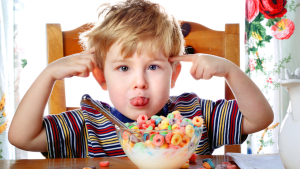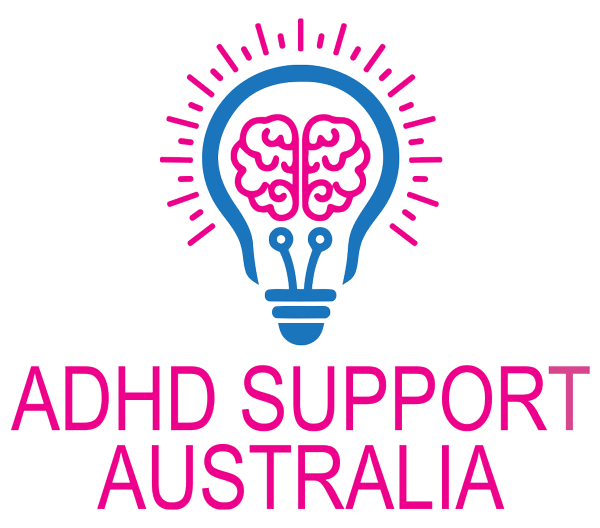
Does Diet Affect ADHD?
A question often asked in the ADHD community is ‘does diet affect ADHD?’
The diet question is a difficult one because many parents seem to automatically become a little defensive about it.
Why the defensiveness? Guilt?

If you’re a parent, you undoubtedly know all about guilt. We feel it almost all the time in relation to our kids. We blame ourselves for everything we can blame ourselves for and then some.
The Emotions of Food
Food is so much more than just sustenance. Eating can be a source of comfort, a pleasure, a bribe or a treat as well as being a social act. As parents, especially mothers, it speaks of mothering, nurturing and providing for our children. Love goes into our cooking and we take pride in seeing our kids grow and develop as a result. It’s instinctual and goes to the heart of what being a parent is all about.
With that kind of emotional importance attached to food, its no wonder this question makes parents feel their basic nurturing skills are being questioned and their hackles rise.
Does Diet Affect ADHD?
Parents may be convinced ADHD symptoms are not affected by diet because they believe their kid has a healthy diet, they definitely don’t feed them junk food and still they have ADHD symptoms.
Notice though, the question isn’t ‘Does your child have ADHD symptoms because you feed him junk food?’ or even ‘Does your child have ADHD symptoms because his diet is unhealthy?’
The question is ‘Does diet affect ADHD?’
The word ‘diet’ means the food that you eat on a regular basis. It doesn’t assume anything other than that.
The emotion surrounding food causes an assumption to be made about this question. It assumes – if the answer is yes and I am responsible for what my child eats – I am to blame for their ADHD symptoms.
Well that’s a whole truckload of guilt right there!
No Need for Guilt!
Don’t worry you can safely read on – I’m not going to make you feel guilty.
So, let’s start by taking the emotion out of the equation for a minute and look at the reasons why you don’t need to feel guilty.
Firstly, the majority of ADHD professionals maintain diet has absolutely nothing to do with ADHD. They are usually psychologists trained in the study of the mind. Their expertise does not extend to other areas of the body or to nutrition. They rarely view the situation holistically. In most cases the diagnosing professional will make no reference to diet following an ADHD diagnosis.
Secondly, a few parents who try some form of dietary modification find no significant change to their child’s ADHD. Hearing this, other parents decide there’s no point bothering, as a friend tried it on their kid and it didn’t work.
Thirdly, the idea of what constitutes an ADHD-friendly diet is not clear. There are many factors to consider and every case is slightly different.
Lastly, those who consider themselves to have a healthy diet are less likely to see the need for changes or to investigate the diet avenue further.
Given these facts it’s no surprise that scepticism prevails.
Question, Explore & Experiment
Running an ADHD support group has raised my awareness of the extent of parents’ daily struggles with their child’s ADHD, including a high incidence of physical problems such as gut issues, food sensitivities and chronic fatigue. Whether medicated or not a plethora of issues persist – hence the high attendance at our support group.
For some children, medication improves certain aspects of ADHD, but usually not all. Others find medication offers no significant improvement and others experience unwanted side effects. Behavioural or psychological therapy are often helpful but are not the complete answer for everyone either.
Don’t we need to cast aside the fear of blaming ourselves and to start asking if there is anything else we can do?
In order to change the way things are, don’t we need to question what we’re doing?
To accept the fact diet may play a role in ADHD symptoms doesn’t mean because your child has ADHD you have to admit liability due to the food you’ve been feeding them.
To accept the fact means you’re willing to question, explore and experiment in order to see if you can make a difference to your child’s well being. It’s about being open to new ideas.
Gluten & Dairy
For example, there is a great deal of research linking gluten and/or dairy consumption with ADHD symptoms.

The ‘official’ food pyramid
However, gluten and dairy are not perceived by the majority of our society to be unhealthy foods. Gluten is contained in wheat, oats, rye and barley and is found in a great many of our staple foods such as bread, pasta, pizza and breakfast cereals. These foods form the base of the official food pyramid.
Dairy is also heavily featured on the official food pyramid and promoted as being a healthy food, that we must consume or risk osteoporosis. So, if you are following current dietetic guidelines your child is likely eating a bowl of cereal with milk for breakfast, sandwiches and a yogurt for lunch, and pasta for dinner and this is officially a healthy diet. You are doing what you have always been told is right and have no reason to believe otherwise.
Remember though, research shows, in sensitive individuals, eliminating gluten and dairy can have a major impact on concentration, mood and behaviour.
One Man’s Meat is Another Man’s Poison
My daughter has coeliac disease, an autoimmune disease where the consumption of gluten causes damage in the small intestine. She wasn’t diagnosed until the age of 12. Prior to that she had what I considered a healthy diet, which included beautiful, organic, wholemeal bread. So, a diet I, and society considered healthy was not a healthy diet for her.
That’s the point – everyone is different and as the saying goes ‘one man’s meat is another man’s poison’.
Eating that gluten caused a whole load of damage to her gut and has resulted in the health problems she faces now.
Once You Know Better You Do Better
Do I blame myself for packing sandwiches in her lunchbox or for baking her a cake on her birthdays?
No I do not!
Why?
Because I didn’t know better AT THE TIME and you can’t blame yourself for doing something that you don’t know is wrong can you? BUT once you know better you do better.
Of course, once I did know, I ensured she was on a strict gluten free diet. Had I not done so, then I would be eligible for some blame.
Food Sensitivities & Intolerances
To highlight the point further, some people have food sensitivities and intolerances. For example, some are sensitive to salicylates – a naturally occurring chemical produced by many fruits and vegetables. No one can deny a diet rich in fruits and vegetables is healthy, but if your child has a salicylate sensitivity some of those fruits and vegetables will be doing more harm than good.
Remember there’s not always a one size fits all solution. What works for one child doesn’t work for the next.
Preservatives, Colourings, Flavourings & Additives
Eliminating food preservatives, colourings, flavourings and additives are an important step in helping your child with ADHD and this definitely improves behaviour for many, but will not be enough for others. In fact they don’t do anyone any good, so avoiding them is generally beneficial to well being. Figuring out what is triggering your child’s problems can be like peeling back the layers of an onion. There’s not always just one solution.
Guilt and blame are emotions that are familiar to parents but are counterproductive here. You are not to blame for your child’s ADHD but that doesn’t mean you shouldn’t question and keep an open mind about the possible causes of symptoms and ways in which you might be able to reduce these.
The author, Vivian Dunstan, is Founder & CEO of ADHD Support Australia ADDCA trained ADHD Coach, Parent Coach & Facilitator of Parenting Children with ADHD – a 6-week online course, Certified Tech Addiction & Digital Health Educator (NIDHW) and Facilitator of the 6-week online Digital Parenting Program, Certified PEERS Social Skills for Teens & Young Adults coach and program facilitator, Certified NeuroACT provider & course facilitator, non-practicing teacher, parent of a young adult with ADHD and has ADHD herself.



